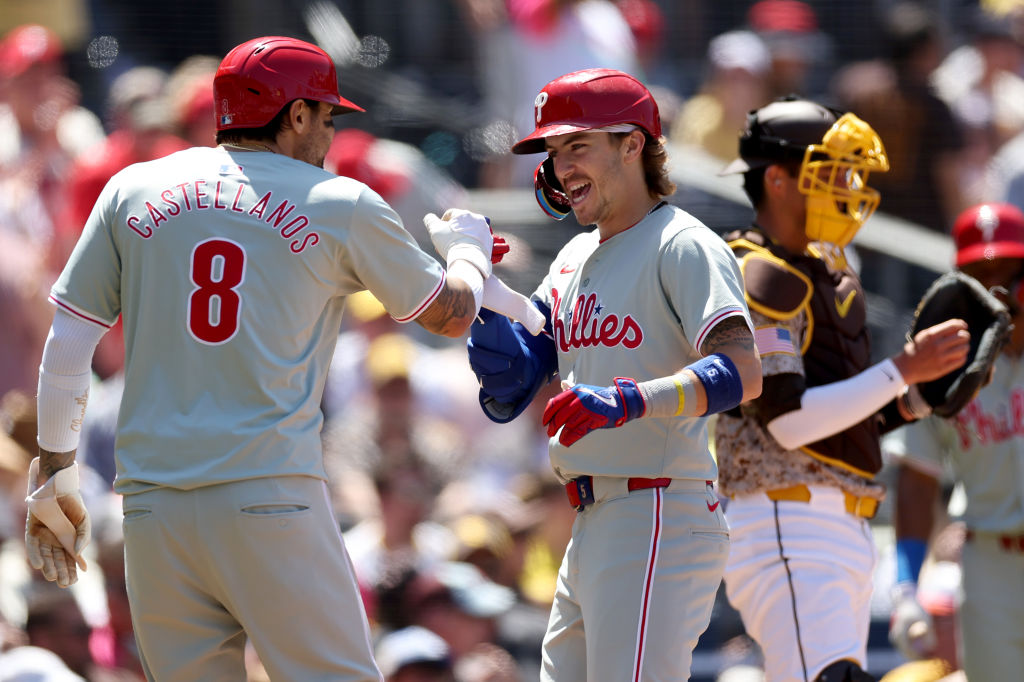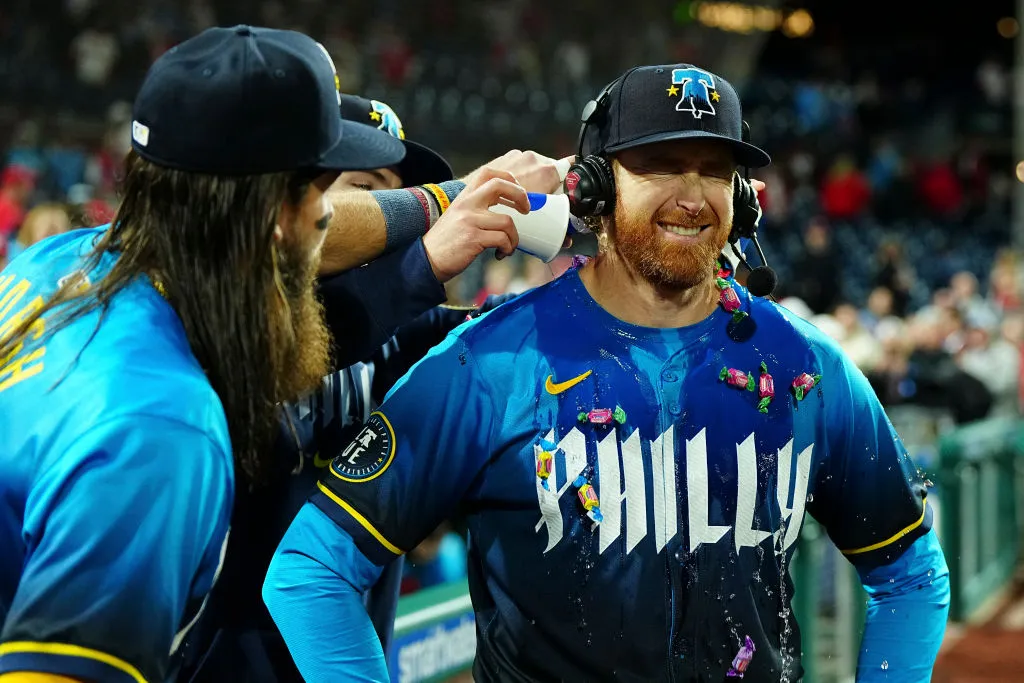CLEARWATER, Fla. — Zack Wheeler's three-year, $126 million contract extension with the Phillies does not kick in until 2025 so it has no impact on their 2024 payroll, but it's already worth looking ahead a year to where things stand after Wheeler and Aaron Nola signed contracts that will pay them a combined $66.6 million next season.
"We have a high payroll, as you know," president of baseball operations Dave Dombrowski said Monday. "There are challenges because there are different parameters, but we'll take those challenges when we know we can start off at the top of the rotation with Wheeler and Nola."
The 2024 payroll
Stay in the game with the latest updates on your beloved Philadelphia sports teams! Sign up here for our All Access Daily newsletter.
The final season of Wheeler's five-year, $118 million contract is the figure the Phillies pay. His annual average salary is $23.6 million, substantially lower than the $42 million AAV that kicks in next year with his extension.
The Phillies are carrying a franchise-record payroll of approximately $246 million this season. The number that applies to the Competitive Balance Tax, often referred to as MLB's luxury tax, is about $262 million.
The luxury tax threshold is $237 million but there are three additional levels with increasing penalties above $257M, $277M and $297M.
The Phillies last season exceeded the tax by about $23 million and paid a penalty of $6.98 million. It was the second straight year they exceeded the tax, so they were hit with a 30 percent penalty on all overages rather than the 20 percent tax for first-timers.
Philadelphia Phillies
When a team exceeds the tax for three or more consecutive seasons, the penalty is 50 percent for every dollar over the threshold. Teams' luxury tax figures are calculated at season's end, but the only way the Phillies won't exceed it in 2024 is if they crater and sell off a slew of pieces by the trade deadline, an extreme unlikelihood given the resources they've invested in this club.
"We set those parameters on a yearly basis," Dombrowski said. "We're also very supported — our fans are great that come through the gates, great sponsorship in that regard so we drive revenues, which is always a challenge. There's a limit to how much we can do. It's not unlimited. But those will be questions I think we'll face more at the end of the year once we see how our season progresses."
Room to add?
The Phillies' payroll rose by about $35 million from 2021 to 2022, $11 million from 2022 to 2023 and another $7 million from 2023 to 2024.
They've added at every turn and continued to make finishing types of moves even when it looked like they were done, bringing in veterans like Craig Kimbrel last winter, Michael Lorenzen last summer and Whit Merrifield this spring.
Is there still room for another major addition if the need arises during or after the season?
"I think there's a way to do it if it becomes a necessity," managing partner John Middleton said Monday. "But maybe the star that we add is (Andrew) Painter or (Mick) Abel, or (Johan) Rojas gets all of a sudden comfortable at the plate and he's starting to hit .285 to .300 with his defense and he's a star. And (Brandon) Marsh could be a star. (Bryson) Stott, I think, already is a star. He's a finalist for the Gold Glove. He should be an All-Star in my opinion this year. He could be winning the Gold Glove. That's what you need."
The only player from that group who won't factor in the Phillies' 2024 plans is Painter, who is recovering from Tommy John surgery performed last July. He won't pitch competitively until 2025, unless he's perhaps able to log a few innings in the Arizona Fall League.
Abel, the Phillies' No. 2 prospect behind Painter, figures to spend much of the season at Triple A. Making it to the majors in '24 is his goal and it will be determined in large part by his control.
The 2025 payroll
When the Wheeler extension kicks in, the Phillies will have approximately $216 million committed toward their 2025 payroll with $211 of that allocated to nine players: Wheeler, Nola, Bryce Harper, Trea Turner, J.T. Realmuto, Kyle Schwarber, Nick Castellanos, Taijuan Walker and Jose Alvarado.
They also have an $8 million option on Seranthony Dominguez.
Ranger Suarez and Gregory Soto, who earn $5.05M and $5M this season, will be going into their third and final arbitration years with rising salaries. Alec Bohm will be due a raise from his $4M first-year arbitration figure.
The contracts of Matt Strahm and Jeff Hoffman will come off the books, freeing up $9.7 million, but they're two important parts of the team who would be either brought back or replaced at a cost via free agency or trade.
So if the Phillies were to exercise Dominguez' option, keep Suarez, Soto and Bohm at rising salaries and either retain Strahm and Hoffman or replace them with relievers at a similar combined cost, they'd have about $251 million committed toward the 2025 payroll.
That's without considering them picking up Merrifield's second-year option or factoring in any of the more minor arbitration raises for players like Marsh, Cristian Pache, Stott and Edmundo Sosa.
This is why it's so important to have young, cost-controlled players who supplement the roster.
"You've got to have some really good youngsters coming up," Middleton said. "You need people like Stott and Bohm, you need Rojas to develop, and you need Marsh to continue to develop, and you need Abel and Painter and (Griff) McGarry to develop and (Cristopher) Sanchez to develop. You need that. That's kind of the blend that you have to have to be really successful in baseball, in my experience."


